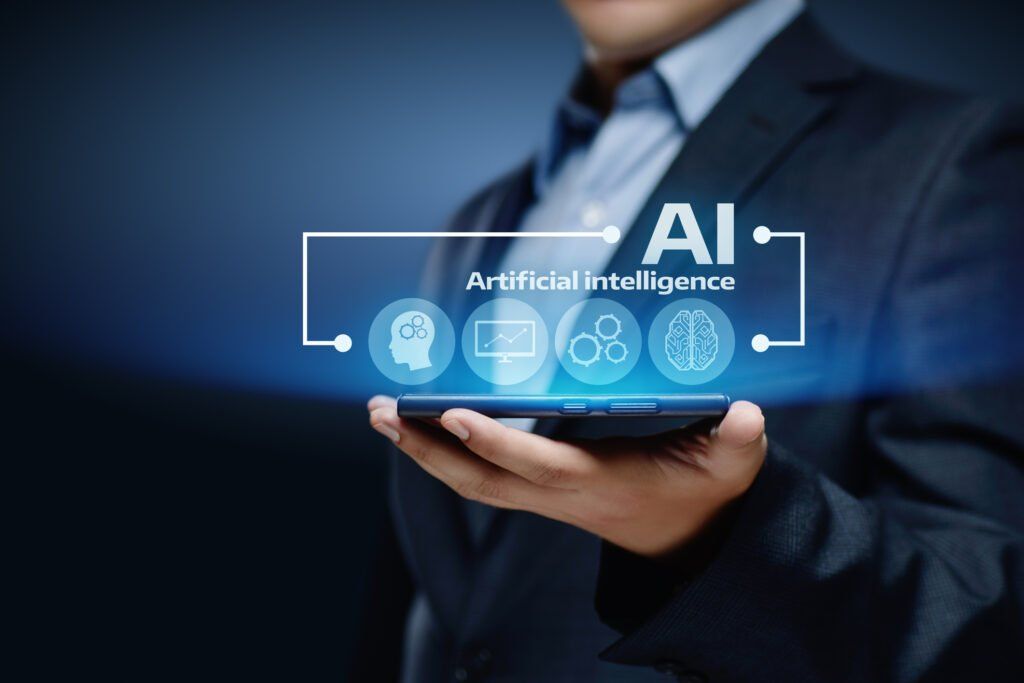If you have not lived under a rock for several years, you have undoubtedly heard about artificial intelligence (AI). However, how might artificial intelligence be used in e-commerce operations?
Artificial intelligence (AI) is starting to fill every facet of our daily lives. For example, self-checkout cash registers, airport security checks, and other automated processes all use artificial intelligence to some degree.
E-commerce companies are already utilizing AI to understand their consumers better, develop new revenue, and improve customer service to their current clients.
How Will AI Influence E-commerce?
E-commerce has gotten more overcrowded and competitive due to the present state of the Internet. Thus, to be successful, a company must be quicker and smarter than its competitors. For example, consider the task of creating a website.
This kind of information on customers and site visitors is all around us, being gathered all the time. Suppose if we could gather, organize, analyze, and use this data in a better way? That is where artificial intelligence (AI) comes in, and it is revolutionizing Internet marketing services.
So let us see how artificial intelligence can help you in developing more effective SEO strategies for e-commerce.
Improved Search Results
Customers are increasingly locating items using search engines and marketplace searches. Organic Google searches generate over 40 percent of e-commerce traffic. As a result, SEO is critical to an e-commerce store’s success.
SEO-based artificial intelligence systems are capable of the following:
A user-friendly website that includes pertinent keywords, meta descriptions, and tags can go a long way toward attracting prospective consumers.
AI solutions can assist marketers in increasing site traffic and organizing information in a manner that encourages purchasers to flow fluidly across your e-commerce business.
SEO-based artificial intelligence solutions can help you eliminate some guesswork associated with picking the correct keywords, producing the greatest content, and determining how to enhance your SEO.
Voice Search
With the emergence of gadgets such as Alexa, Echo, Siri-enabled Apple devices, and Google Home, shoppers can now search for things using just their voices.
As a consequence, companies must guarantee that their items are discoverable through voice search.
Businesses must begin optimizing their web pages for audible search. For instance, many companies can now use machine learning by enabling consumers to buy on their websites using Alexa.
Customers want more ease in their e-commerce buying experience. Voice search enables users to do product searches without needing a laptop or phone, streamlining the shopping experience.
Along with voice search, marketers should begin planning for visual search, as an increasing number of buyers browse for things through visuals.
Certain businesses develop applications that enable users to photograph an item and search for it on their marketplace. Without the assistance of artificial intelligence and machine learning, these procedures would be impossible.
Targeting Specific Customers
When it comes to appealing to prospective consumers, AI eliminates the guesswork. Rather than developing a one-size-fits-all advertisement, businesses can now build customized advertising for particular purchasers based on their online activity.
AI techniques have resulted in more successful retargeting methods. Now, social media networks such as Facebook simplify companies to retarget their advertisements to locations where their clients congregate online.
Additionally, AI systems are getting more adept at deciphering client behavior and purpose.
This new age of robust AI systems is capable of acquiring even more sophisticated data about clients. It can, however, develop algorithms that make it simpler to reach targeted audiences.
Decrease Cart Abandonment
Follow-up emails to abandoned carts have an average open rate of 45 percent. This figure is almost certainly connected to email marketing automation.
An abandoned cart is one of the most obvious indicators that a consumer experienced a technical issue or had an unpleasant experience before purchasing. They were only a few clicks away from making a transaction and converting from lead to customer.
Understanding why your clients are not completing a deal enables you to address the issue and streamline and simplify the purchase process.
Additionally, marketers can utilize AI techniques to segment clients based on their online activity and degree of interest in specific items.
These solutions can assist marketers in determining which leads are likely to convert and which can leave their carts using machine learning.
Marketers can utilize this data to select the most effective content to deliver to target consumers.
Retain Customers Through Follow-Ups
Astute marketers recognize the value of follow-up. However, when marketers are dealing with thousands of clients at different phases of the purchasing process, it can be challenging to get the timing of a follow-up approach right.
It can cost five times as much to gain new clients as it does to retain existing ones.
Customer retention is critical to the long-term prosperity of a business. Today’s marketing automation and artificial intelligence solutions make this much simpler to do.
Fortunately, these AI technologies eliminate the guesswork associated with developing a digital marketing plan for each buyer journey stage, particularly for repeat consumers.
Personalized Purchases
In e-commerce, artificial intelligence enables tailored and interactive purchasing experiences. Businesses can monitor their consumers’ preferences in real-time and give them trustworthy and customized purchasing experiences using AI-enabled technologies.
AI can provide appropriate product recommendations based on the user’s preferences. In addition, AI can significantly understand consumer behavior through customization and analysis of clicks, shopping carts, purchase history, and search queries.
All of these factors can assist e-commerce firms in making appropriate recommendations for subsequent purchases that make sense to the consumer.
Have you ever used the “chat now” button when online shopping? When you were communicating with someone online, chances are you were conversing with a bot meant to assist you with any queries you may have. And, to be honest, it is becoming impossible to notice the difference!
The introduction of new chatbots enhances the talking experience by making it more customized, branded, and intelligent.
Now e-commerce businesses can provide visitors with 24/7 customer assistance, instantly gather valuable data, analyze visitor behavior, and achieve seamless brand continuity. This is due to the improvement of AI’s learning and development capabilities.
With a successful automated chatbot, e-commerce sites and merchants can increase conversion rates by personalizing the online experience for the user without any additional costs.
AI enables e-commerce firms to evaluate millions of interactions every day and eventually personalize offers for each client. That is the experience that every marketer aspires to provide.
In the future, artificial intelligence is projected to have a massive and positive influence on the e-commerce business. It will alter and, in some ways, enhance the way customers search for things online.
This content was originally published here.




